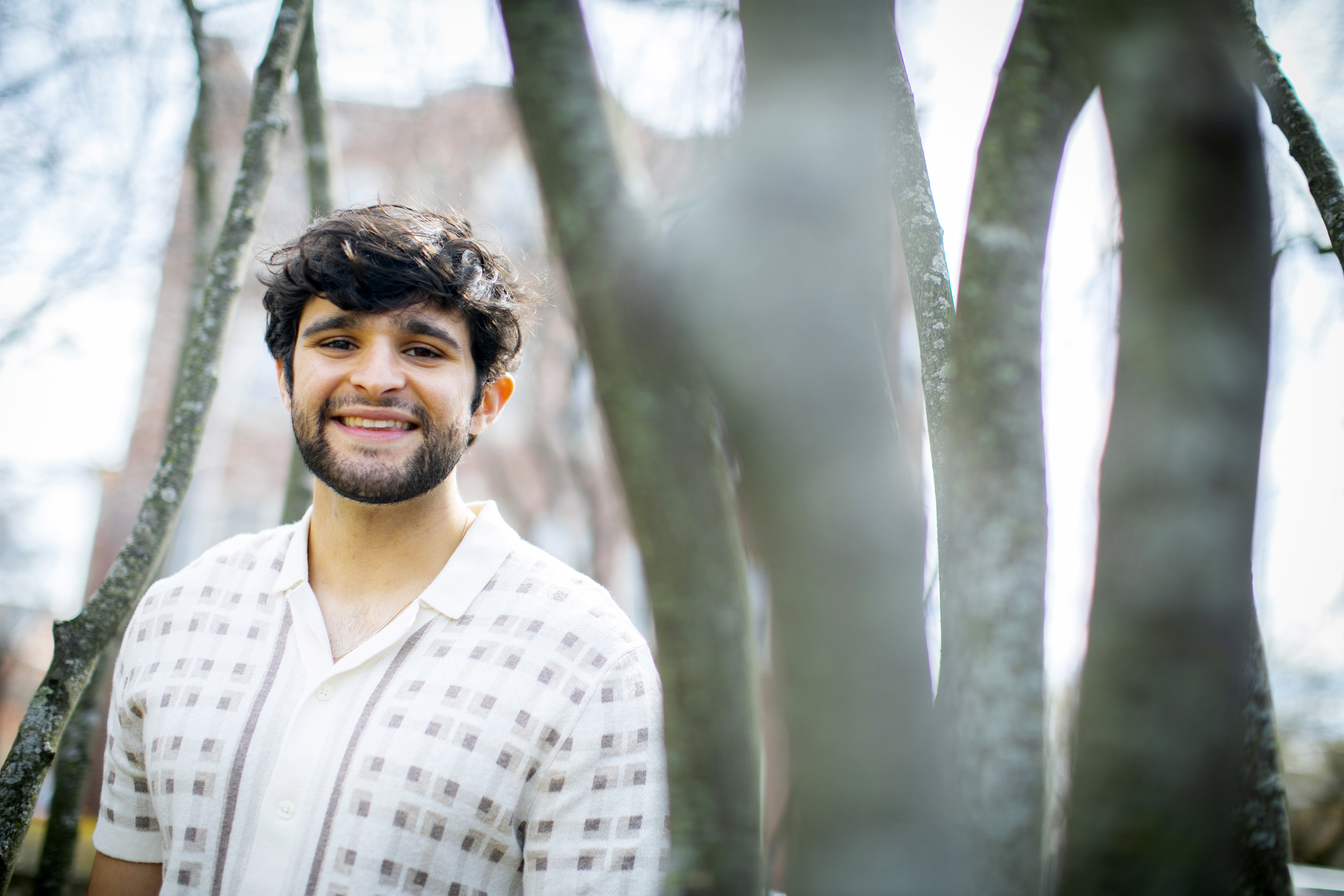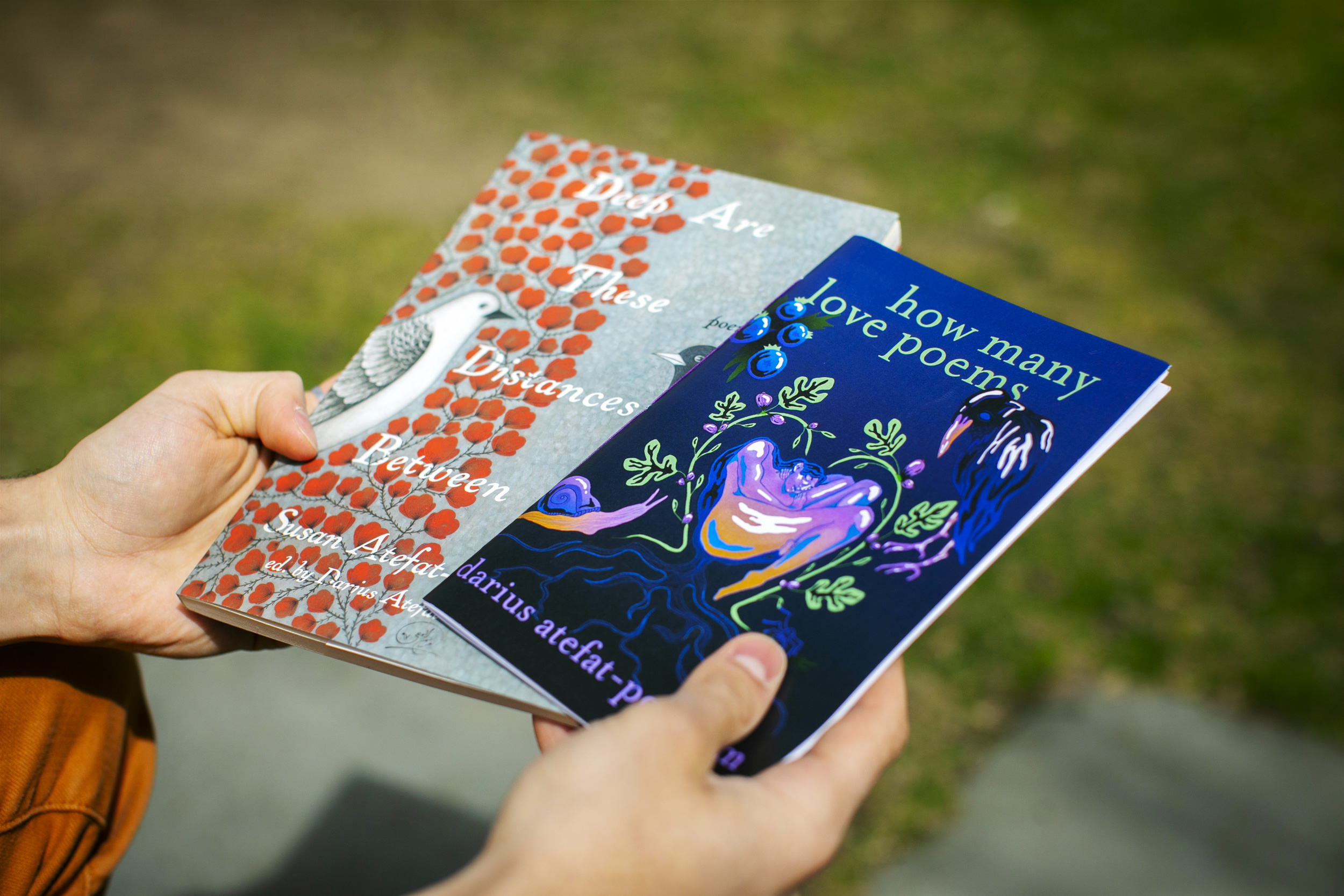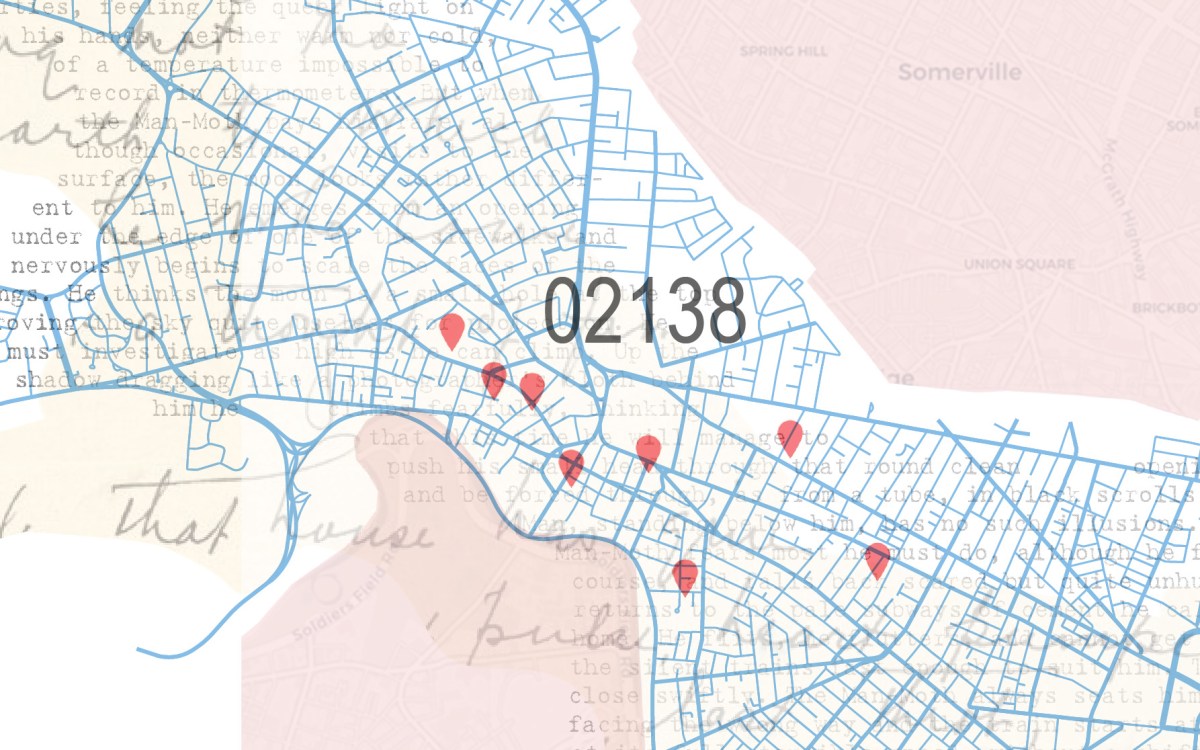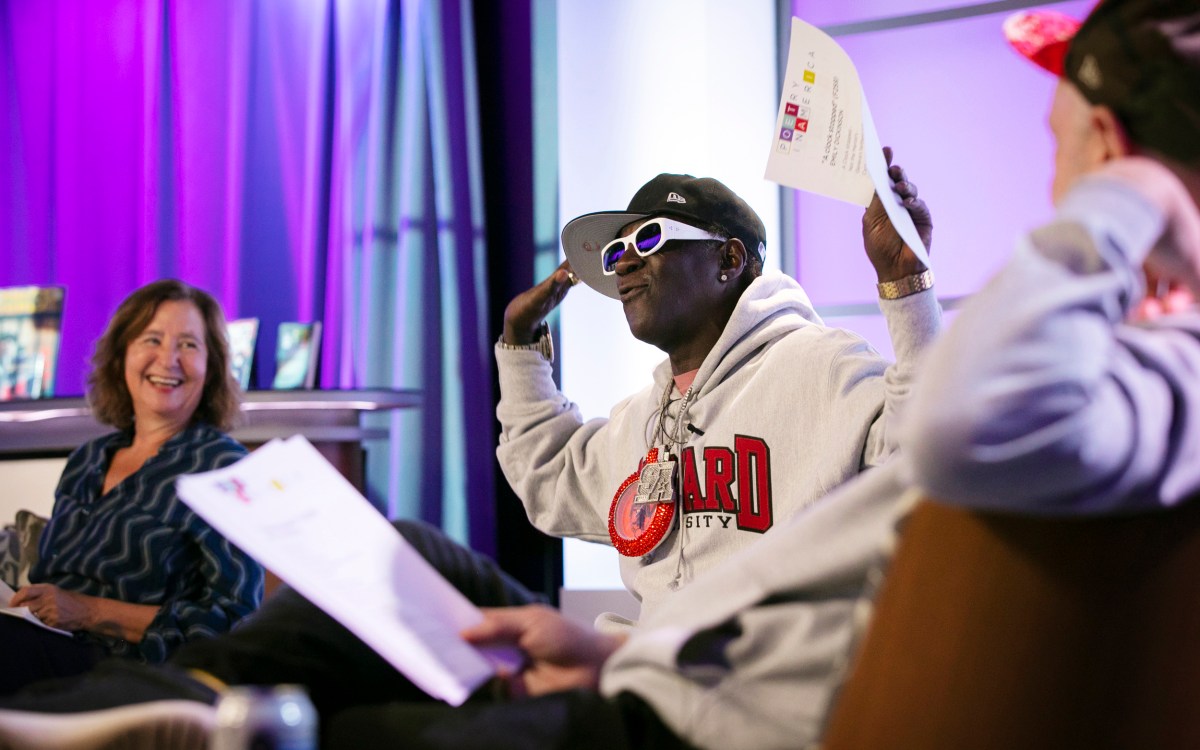
Photos by Stephanie Mitchell/Harvard Staff Photographer
Finishing his mother’s verse
Through poetry, Darius Atefat-Peckham mourns family, explores Iranian roots
This story is part of a series of graduate profiles ahead of Commencement ceremonies.
Darius Atefat-Peckham ’23 was just 3 years old when an auto accident took the lives of his mother and older brother. In the years that followed, he turned to poetry as a way to cope with his grief.
“The first poem I wrote, I was trying to connect with my mother. It was about a flower I saw on a school field trip,” he recalled. “My father was excited. He has always been so supportive.”
After the accident, Atefat-Peckham and his father recovered from physical injuries, but healing from the emotional trauma proved more difficult. The pair rebuilt a life together in Huntington, West Virginia, with help from family and friends. “I’m really grateful for the abundance of people who were involved in my upbringing,” Atefat-Peckham said.
Nobody in this extended support network found it surprising when at age 12, Atefat-Peckham started to exhibit a love of poetry. After all, his mother was an Iranian-American poet and professor of creative writing and literature. His grandfather was a high school English teacher. His grandmother began writing poetry in high school. And his father and stepmother are both writers, poets, and English professors at Marshall University.
Darius Atefat-Peckham reads his poem ‘How Long to Wait There When the Breathing Stops’
transcript
Transcript:
Push the steaming chassis down the exit
ramp, walk two miles into the valley
for gasoline and a way to carry it. Loosening
our ties, scuffing our dress-shoes. Joyful, thinking.
This is how it’s always been, Dad and me
limping back from a funeral in the heat, knowing we
could take up residence in any of these roof-shorn
houses and try to fall asleep there. I’ve never known
how to wake him when he’s being too loud
or too quiet. So still I want to hold my fingers to his
breathing. Body heat making his breath catch
fire, up his Oxford button down. A car gasping
aglow. Our luminous hearts. I’m singing and laughing.
My father is setting his jaw. When I look, he cracks a smile.
National recognition came early for Atefat-Peckham. In 2012, he was named a winner of the Letters About Literature contest and secured $10,000 for his local library. As a 2018 National Student Poet, he brought poetry to middle school and high school students through readings and workshops.
Since arriving at Harvard in 2019, the English concentrator has produced an astounding body of work and helped create inclusive spaces for student writers to refine their craft. He was one of the founding members of the Harvard Creative Writing Collective.
Atefat-Peckham published his debut chapbook, “How Many Love Poems,” during the fall of his junior year. This semester, he completed a creative senior thesis titled “Book of Kin.”
“It’s an exploration of grief after the loss of my mother and brother, a portrait of my family in a poetic space, but it’s also thinking about connection,” he said. “I’m Iranian-American, but I’ve never been to Iran. My mother was a tether to my heritage that I lost growing up.”

At Harvard, the poet was able to forge a new connection to his heritage through Persian language courses. “I didn’t grow up speaking Persian in the home,” he said. “Learning how to translate was huge for me and my work. It made me reconsider my relationship to language, silence, and listening.”
Persian is interspersed throughout “Book of Kin,” but Atefat-Peckham wants to do more with the language. He dreams of one day translating the entire collection. His thesis advisor Tracy K. Smith, professor of English and of African and African American Studies and the Susan S. and Kenneth L. Wallach Professor at Harvard Radcliffe Institute, believes Atefat-Peckham “can make a life in poetry and have an impact on the art form, here and elsewhere.”
“Poetry is a language that is really critical to his understanding of the world and of himself,” said Smith. “He asks big questions and tries to make sense of the things that confound us. He’s alive with a great love of poetry.”
Other sources of community for the Lowell House resident include the Grolier Poetry Book Shop, where he performs his work alongside other local poets, and the Signet Society.
“My mother was a tether to my heritage that I lost growing up.”
After graduating with a degree in English and a secondary in Near Eastern Languages and Civilizations, Atefat-Peckham will spend his summer promoting “Deep Are These Distances Between Us,” a posthumously published collection of his mother’s poems that was released on May 2. Atefat-Peckham edited the collection through a careful process of retyping his mother’s words from hard copies and concluding poems that were left unfinished.
“The project has always been for my family. It’s for my father and for the people who loved her,” he said.
This fall, Atefat-Peckham will pursue an M.F.A. in writing at the Michener Center for Writers at the University of Texas at Austin. He hopes one day to become a mentor for young writers.
“Writing is not a God-given talent. It’s something that people care about and learn to do well through work, care, and practice,” he said. “I want to bring writing to more people.”






